I was recharged and refocused - excited again to learn and driven again to live. Past Review
By A student (Brandeis University) - abroad from 06/13/2017 to 07/27/2017 with
SIT Study Abroad: Madagascar - Traditional Medicine and Healthcare Systems
Aside from gaining an understanding of how people live around the world, what conditions they live in, and how they are still happy regardless, I gained two main things. One, the flame inside of me was re-ignited and I was reminded of the things that once made me feel driven and passionate, and my confidence was restored. Two, I learned the power of communication without words. The primary examples of this were when I interacted with children. Anytime we had the chance, I would gather children around me and teach them a game. A game that could be taught without saying any words, and just acting things out until they understood the concept. And then we had so much fun and had an instant connection. There is so much power in the innocence and lack of complexity in just plain fun.
Review Photos
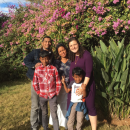
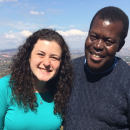
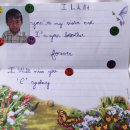
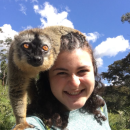
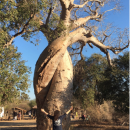
Personal Information
| How much international exposure did you have prior to this program? | 6 months+ |
Review Your Program
|
* Overall educational experience
Academic rigor, intensity, resources, etc. |
The majority of our learning regarding the academic subject we were studying occurred outside the classroom setting. This environment made it seem less "intense" as you've put it in the question above, but it was definitely a rigorous learning schedule, and we learned a TON about traditional medicine and healthcare in Madagascar. There was less work to do throughout the summer, and more ongoing research and reflections that culminated with a final research paper and reflection journal overview and visual essay at the end of the program. There was definitely plenty of work to do, such that we had enough time to do school work and also meet the people and get to experience living in Madagascar. I was glad I could spend time with my hose family and not need to spend every day in my room doing homework, as I would during the school year at college. |
|
* Host Country Program Administration
On-site administration of your program |
Dr. Nat Quansah introduced himself as our grandad the first time he addressed the whole group, and he treated us with the care as if we were his grandchildren the entire time we were in Madagascar. He is a wise man, and an exceptional human being, and we all felt that we were in such good hands. And even beyond that, he is a phenomenal educator. We were constantly learning from him, both inside and outside the classroom. He made everything into something we could learn from. |
|
* Housing:
How satisfied were you with your living arrangements? |
I never thought I would be so close with a family I'd met for 10 days or for 5 weeks. But leaving them was the hardest thing I've ever had to do. They filled our lives with so much love as if we were their children. Living with host families was the greatest way to really get to know and understand the Malagasy culture. This is something that we would have totally lost had we spent all our time at hotels or dorms. |
| * Food: |
I spoke with the program director and together we arranged very last minute that I would stay with the president of the new local Jewish community. I keep kosher, and so did my host family there. However, any time we left the host family, I was left to eat the tuna packets and protein bars I had brought along with me. This was expected, but I would not say that food was the highlight of my trip. |
|
* Social & Cultural Integration:
How integrated did you feel with the local culture? |
Definitely felt like I was a foreigner walking on the streets. But inside my host families' homes, I felt as though I was one of their own. |
|
* Health Care:
How well were health issues addressed during the program? |
Nat Quansah took such good care of us. He provided for us and cared for us as if we were really his grandchildren. I have nothing more to say than that. |
| * Safety: |
I felt very safe after Nat Quansah spoke with us, and whenever we were with him I felt safe. Do not go out at night unless you are with your family members or other natives who you trust will take care of you. |
| If you could do it all over again would you choose the same program? |
Yes
Aside from just going to an exotic place, learning about the beautiful culture there, and experiencing a place I would have never otherwise visited, the fact that Dr. Nat Quansah runs this program is reason for anyone to do this program. You could have a program with a fascinating topic, but if the director does not give their students the amount of care that Nat did, the program would have felt much more scary and lonely for me. I always felt that I was in good hands, and always felt that I was learning something. |
Finances
|
* Money: How easily were you able to live on a student's budget?
(1 = not very easy/$200+ on food & personal expenses/week, 2.5 = $100/week, 5 = very easily/minimal cost) |
Things in Madagascar were much less expensive than in America, or any other western country for that matter. And transportation was generally taken care of for us. I spent the most money on souvenirs and gifts for my host families, and sometimes snacks. But these were not recurring expenses. |
| Not including program expenses, about how much money did you spend on food and other expenses each week? | Each week, maybe $10-20 if even? |
Language
| * Did your program have a foreign language component? | Yes |
| How would you rate your language skills at the beginning of the program? | None |
| How would you rate your language skills at the end of the program? | Intermediate |
| What was the highest level language course you had completed prior to departure? | None |
| How many hours per day did you use the language? | |
| Do you have any tips/advice on the best ways to practice the language for future study abroad participants? | Talk with the people who live there - the best way to learn a language is to talk with the people who speak it and practice with them. Also, learn songs or make up songs in that language - it will help to remember vocabulary. Just do not be afraid of sounding silly because you don't speak the language fluently. It means a lot to the locals when you show that you are trying to learn their language. Practice with little kids too, because they don't mind if you make mistakes, and don't mind correcting you either. And bring flashcards with you. |
Other Program Information
|
* Where did you live?
Select all that apply |
|
|
* Who did you live with?
Select all that apply |
|
|
* Who did you take classes with?
Select all that apply |
|
| About how many local friends did you make that you will likely keep in touch with? |
A Look Back
| * What did you like most about the program? |
|
| * What could be improved? |
|
| * What do you know now that you wish you knew before going on this program? | I wish we would have been able to speak with the program director before going on the program. We basically did not know at all what was happening until he met us at the airport (which we didn't even know was happening either). Once we got there, things were more organized. But I wish I knew that going in, because who wants to fly half way across the world and not even know who will be guiding them and taking care of them? |








